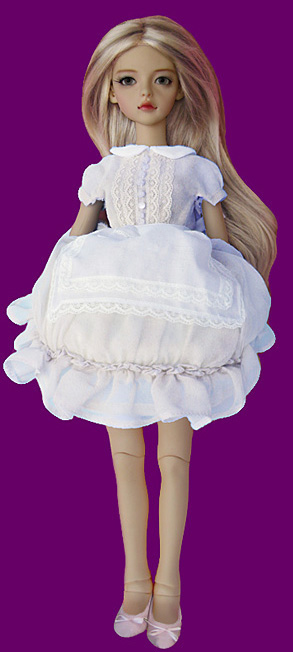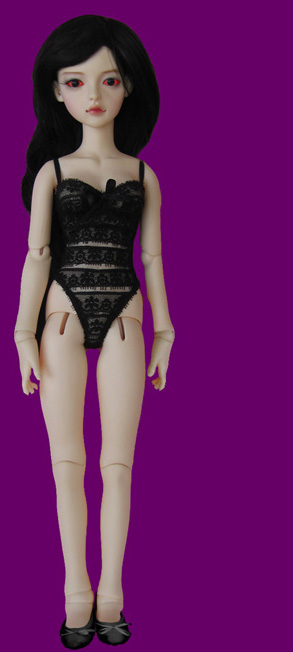
|
Black Swan Andrés Heinz, Mark Heyman, John McLaughlin, and Darren Aronofsky, 2010 #3, 2010 Skandies In Black Swan we meet Nina, a ballerina who has just been cast in a dual role in Swan Lake. The company director is sure that she can play the White Swan, as her technique is flawless and she embodies the timorous maidenliness the part calls for, but is concerned that she won't be able to summon the passion needed to play the seductive Black Swan. He and Nina's vivacious understudy Lily try to get her to loosen up, unaware that Nina is secretly crazy and that "letting go" means letting that out. Now, let's see. Identity invested in being able to perform at an elite level, tightly wound, socially awkward, snickered at for her apparent sexlessness, presumed to be kind of robotic but actually roiling with emotional instability... yeah, relating to Nina wasn't going to be a problem. But it wasn't just my adolescent self that she reminded me of, especially when she started to physically transform into the Black Swan. At that point it was hard to miss the overlap between Black Swan and one of the foundational texts of my adolescence. Here, see if this sounds familiar: A little boy has just watched his father beat his mother to death. As he stands there, stock still, his adult self, visiting this memory, is outraged at his younger self's passivity. "Cry!" he demands. "Or scream! Shout! Do something! Do anything, blast you! React! React!" The boy then screams "RAAAARRRRR" as he transforms into a gigantic monster, the personification of a three-year-old's rage. Then transforms back. "There," he says calmly. "I reacted. A nuclear reaction. Happy now?" In case you don't recognize it, that is The Incredible Hulk #377. And Black Swan offers basically the same fantasy as the psychologically-driven runs on Hulk. Why "fantasy," given that both for Bruce Banner and Nina Sayers their barely-repressed shadow selves are depicted as monstrous and their existence living with these monsters as a kind of hell? Two reasons. One, the monsters get shit done. Whatever forces array themselves against Banner, Hulk smash. And when Nina needs to put on a performance beyond her normal capabilities, the Black Swan leaves the audience stunned. Two — you've heard of the "humblebrag"? An expression of dismay or self-deprecation that just so happens to sneak in a reference to one's privilege ("Having a Lamborghini is such a pain in the ass — cops are always pulling me over") or accomplishments ("Tripped on the way up the stairs to get my Oscar! Real smooth!")? To lament that you're tormented by the terrifying darkness within you is, in a way, to flatter yourself for your emotional depth. At least, that was my experience. I was basically bipolar until I was 25, and while being regularly gripped by suicidal despair is pretty low on my list of experiences I'd like to repeat, I can't deny that there was a stupid adolescent romance to the idea that even though on the outside I seemed like just a nerd, on the inside I was secretly a doomed tortured artist. I wound up discovering that my wild mood crashes were not purely endogenous but rather a product of the fact that my life actually did suck in a lot of ways, and that once I had reason to believe that I would not in fact be foreveralone.jpg I could proceed on a more even keel. So what's the source of Nina's problems? Black Swan's answer is pretty scattered. Her hallucinations point to schizophrenia, but the movie also throws some blame at her mother, who is such a helicopter parent that poor Nina can't even finish touching herself in the morning because Mom is sleeping in a chair by her bedside, and who is enough of a hysteric to pull the "oh, well if you're not hungry then I guess I'll take the cake I got you and throw it in the trash" routine. (She also seems to have gone to her plastic surgeon and said, "Give me the Catface Meowmers." Shudder.) Then there's the suggestion that Nina's real problem is that in her quest to reach the top of the ballet world, she's pushed herself to the breaking point — that the strain of her perfectionism has driven her mad. There is something to the notion that the drive to be the very best at something is itself a kind of mental disorder, but this isn't really explored in any coherent way. But I reckon that Black Swan isn't really trying to be coherent. I'd seen a couple of Aronofsky films before watching this one. π was about a guy who gets really into math and goes crazy; the movie is less a coherent statement about mathematics or psychosis than it is a delivery system for flashy montage sequences revolving around those themes. Requiem for a Dream was about four people who get into drugs and go crazy; the movie is less a coherent statement about drugs or psychosis than it is a delivery system for flashy montage sequences revolving around those themes. Black Swan is... you see where I'm going. I came away with the sense that the organizing principle of the film was "All right, so what else would be cool? I know, doppelgängers! Doppelgängers are trippy — let's have some of those! And... ooh, how about some hallucinated wounds? That'll be creepy!" And Aronofsky is right about that last part, at least. The horror sequences are indeed horrifying — I had no problem watching all kinds of gore in Game of Thrones, but Nina pulling at a torn cuticle made me cover my eyes and curl into a ball until it was over. (I have the same reaction to people in movies or on TV shaving, or cutting their fingernails, or chopping vegetables. You just know the ouchies are coming.) But as for the rest... well, let me put it this way. π's opening credits begin with the single-character title in white, followed by the number that symbol represents quickly scrolling onto the screen, line after line of digits. But look at those digits. After 3.14159265, the next digit is 2, when it should be 3. Then 6 where a 5 should be. Then 3 instead of 8. The number on the title screen isn't actually pi! It just kind of looks like pi! How about the ballet in Black Swan? Initially I was quite impressed, as normally I don't get ballet at all — expressive dance in general does not express anything to me — but I found these sequences kind of thrilling to watch. But precisely because ballet does nothing for me, I examined my response more closely, and realized that, no, what I'd found thrilling to watch were actually the swoopy camera moves! It just felt like it was the ballet! And at the end of the movie, with Nina's last lines still ringing in our ears, we might well think that we've just seen a character study about a young woman torn apart by art and perfectionism and mental illness. But looking back, no, the story isn't cohesive enough to constitute an actual character study. It just kind of seems like one.
| |||||||||



